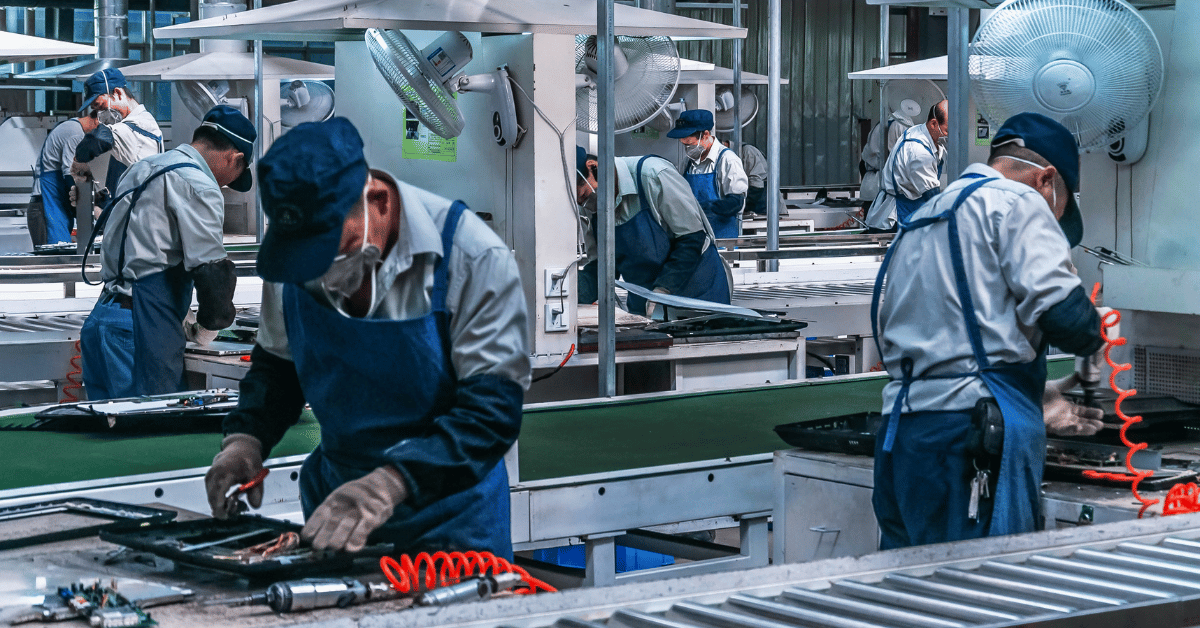Loading...

At some point in the 20th century, almost all jobs were factory jobs. The vast majority of people worked in shifts at manufacturing plants that were making everything from clothes to cars. Fast forward to today and you probably don’t know anyone who works at a factory, and the factories themselves, save for a few large ones, are nowhere to be seen. A combination of advancements in automation and the growing popularity of offshoring are to blame.
New charismatic leaders are however trying to change this. In the US and parts of Western Europe, factory jobs have become a crucial selling point for politicians, who claim that through policy interventions, they can bring back the hey days of manufacturing. Pundits however point out that this is highly unlikely, and no interventions, no matter how comprehensive they are, can create the millions of factory jobs that politicians like to talk about.
Automation and Robotics
Even in a scenario where all manufacturing can be done in the country, automation means that the number of people hired will be significantly lower today than in the past. Manufacturing nowadays is so highly automated that an entire assembly line can have just five employees instead of 100, and even the five employees will mainly serve as inspectors who don’t do the heavy lifting. Automated manufacturing processes are not only cheaper, but they are also more accurate when handling repetitive tasks. The large labor forces in factories that politicians like to talk about are therefore generally highly unlikely.
Advanced Manufacturing Techniques
Manufacturing technologies have also come a long way. In place of complicated assembly lines, 3D printers that cost significantly less can produce hundreds of units of products daily. Most industries as a result are no longer as labor intensive as they used to be. This also means even if everything consumers need is made in the country, the number of workers needed will be significantly lower than was the case in the past.
Shift to Service and Knowledge Economies
The service industries in most developed countries have recorded more rapid growth when compared to Manufacturing. As costs of Manufacturing went up, service industries that focus more on knowledge became more popular. Service industries such as technology have become more Profound pillars of the economy than Manufacturing. Even with favourable policies, Manufacturing is unlikely to pick up the same steam it had in the past.
Environmental and Regulatory Pressures
Manufacturing can no longer be carried out in the care free fashion that was common in the 70s, 80s and 90s. The environmental Degradation associated with Manufacturing has been documented in detail and governments have put in place harsh regulations that aim to protect the natural environment. Firms can no longer handle chemical waste carelessly or emit volumes of carbon gasses in an unchecked way. These regulations means that Manufacturing is now more expensive than it was in the past. New technologies are often introduced to make Manufacturing processes more efficient as a way of complying with these regulations, which also means fewer workers.
Globalization and Outsourcing
Globalization means that local companies are competing with others all over the world, and not just those in their jurisdiction. High production costs in the domestic market places local companies at a disadvantages if their peers operating from low cost countries are able to keep production costs low. Most developed countries try hard as they may, cannot compete with developing ones in terms of costs. This means the bulk of manufacturing will generally stay in developing countries, no matter the policy changes wealthier countries try to implement.
Conclusion
Manufacturing is therefore not likely to come back in the same scales recorded during and after the industrial revolution. While some progress may be made, the vast majority of jobs are not going to be factory related.